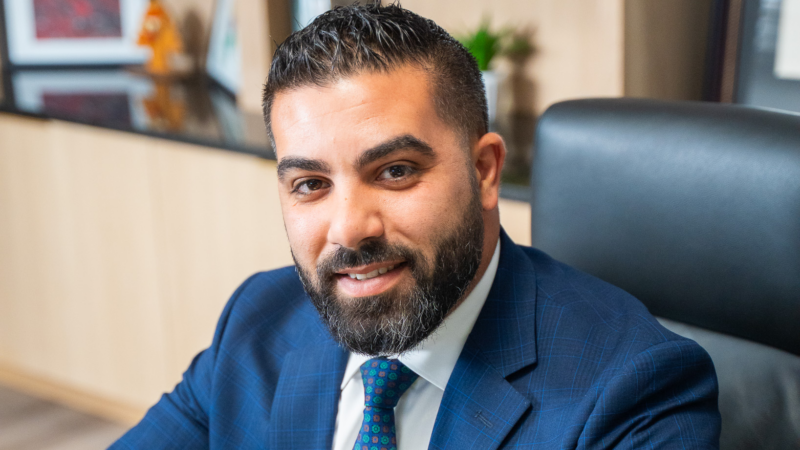Recipient of pig kidney transplant reaches a milestone
NEW YORK — Towana Looney is waiting to check in with her doctors at NYU Health Langone when it registers that she’s passing a major milestone in her recovery from a kidney transplant.
In late November she became the first person in the world to receive a new kind of genetically modified pig kidney. Now two months have passed.
Four other patients previously received different kinds of genetically modified pig kidneys or engineered pig hearts, but none survived as long.
“I didn’t realize that I was going to be the longest living person with an animal organ,” says Looney, 53, whose home is in Gadsden, Ala. “It’s amazing.”
Looney says she hasn’t felt this good since she went into kidney failure eight years ago.
“I’ve been feeling great,” she says. “A lot of energy. Been walking a lot of blocks. Walked 10 blocks one day.”
It’s a big change from the years she spent on dialysis.
“When I was on dialysis, [I] couldn’t walk long distances without getting short of breath. And now it’s like: Go, go, go! It’s like a whole new world, a whole different feeling.”
Her appetite has also come thundering back.
“I can’t stop eating,” she says with a laugh. “Before I got the kidney, I was fatigued, nauseated. I just didn’t feel like I had the energy to eat. But now? Oh God, I want to eat every hour.”
Since being discharged to an apartment near the hospital, she’s been sightseeing, shopping and exploring Manhattan.
Looney has to stop by the hospital every morning to make sure she’s still doing OK. But doctors hope she can go home to Alabama in about a month.
“She’s doing extraordinarily well.” says Dr. Robert Montgomery, the director of NYU Langone’s Transplant Institute, who led Looney’s operation. “If you passed Towana on the street you wouldn’t have any idea that she’s the only person in the world who’s walking around with a functioning pig kidney. That’s a big deal.”
NPR got exclusive access to be in the operating room for the experimental procedure on Nov. 25.
Montgomery, who himself received a human heart transplant in 2018, says researchers hope that someday genetically modified pig organs can solve the organ shortage, saving thousands of lives every year.
“It does seem futuristic,” he says. “It does seem like something I wouldn’t see and be such a big part of in my lifetime.”
But Montgomery stresses that no one knows how long Looney’s pig kidney will last.
“I hope that it lasts a good long time,” he says, “but we’re in uncharted territory.”
Some researchers worry that pig organs could spread animal viruses to people and about breeding and slaughtering animals for their organs.
Some bioethicists question experimenting on desperate patients. Critics also say no one will really know how well gene-edited pig organs will work until researchers do a large, careful study.
Looney and the other patients have been able to receive pig organs because the Food and Drug Administration made an exception to its usual clinical study requirements so that highly experimental treatments can be tried for patients who have exhausted other options.
But the transplants performed so far, outside of rigorous clinical trials, provide limited evidence.
“If this person lives for a good long time, whatever that means — six months, a year, longer — with a pig kidney, that alone is not going to allow us to conclude that this is a solution to the organ shortage,” says Michael Gusmano, a bioethicist at Lehigh University College of Health.
The FDA may give the green light to a study this year at the request of Revivicor, a Blacksburg, Va., biotech company developing the organs, including the kidney Looney received. NPR also got exclusive access to report on Revivicor’s research farm last year. A rival company, eGenesis, of Cambridge, Mass., is also testing organs from another kind of modified pig.
In the meantime, Looney is looking forward to going home to her husband, two daughters and two grandchildren. She also wants to resume work as a cashier at a Dollar General and to travel more.
She’s “just thankful to be alive,” she says. “That’s the biggest gift of all to be alive. It gives you a new outlook on life. It’s just like having a second chance at life, really. It’s amazing.”
Judge finds Newsmax aired false and defamatory claims about voting-tech company
A Delaware judge finds the right-wing network aired false and defamatory statements about Dominion Voting Systems' role in the 2020 presidential election. A jury trial is slated for late April.
10 emerging writers win Whiting Awards
The awards, which come with a $50K purse, have helped launch the writing careers of many now well-known authors, including Colson Whitehead, Ocean Vuong, Alice McDermott and Jia Tolentino.
Alabama approves regulations on pharmacy benefit managers in order to help small pharmacies
The Alabama House backed the proposal that will require pharmacy benefit managers to reimburse independent pharmacists at least at the state Medicaid rate for prescription drugs. The bill now goes to Alabama Gov. Kay Ivey.
20 musicians who should get to go to space before Katy Perry
On April 14, Blue Origin plans to launch a space flight with a crew that includes the singer behind the 2010 hit "Firework." But we can think of many other artists who deserve to be among the stars.
Attorney representing a student protester detained by federal immigration agents
Amir Makled sat down with All Things Considered host Juana Summers to describe his experience and what it could mean for other attorneys who are going against the wishes of the Trump administration.
European Union approves new retaliatory tariffs on the U.S.
All but one of the 27 EU member countries voted to impose tariffs on specific U.S. products. The vote came before President Trump announced a 90-day pause on U.S. tariffs on goods from most countries.









